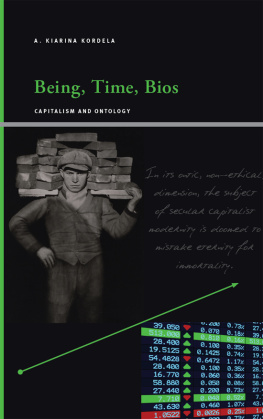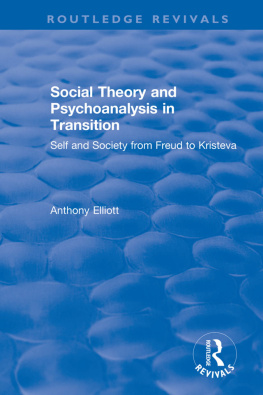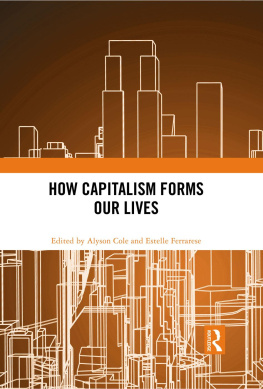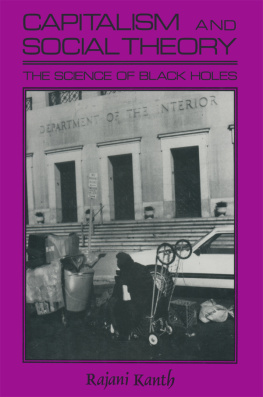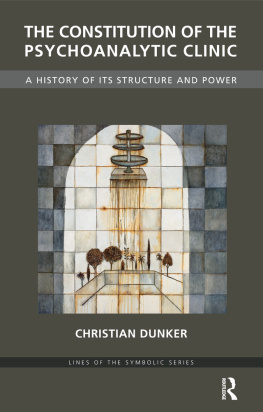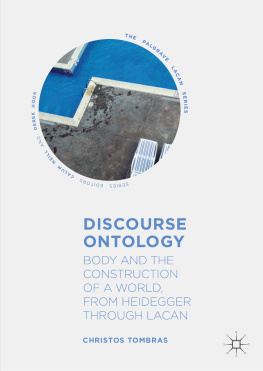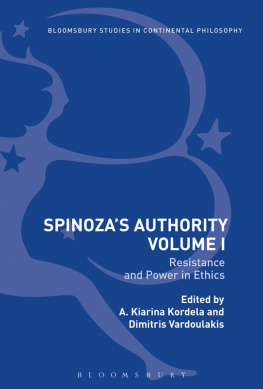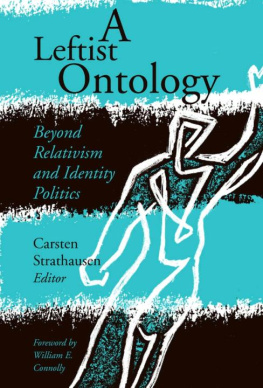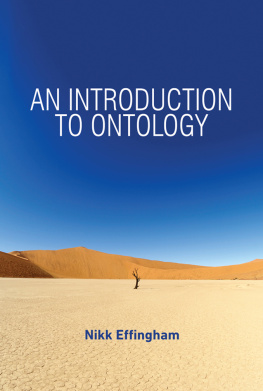SUNY series, Insinuations: Philosophy, Psychoanalysis, Literature

Charles Shepherdson, editor
Being, Time, Bios
Capitalism and Ontology
A. KIARINA KORDELA

Cover image: August Sander, Bricklayer / 2012 Die Photographische Sammlung / SK Stiftung KulturAugust Sander Archiv, Cologne / Artists Rights Society (ARS), New York
Published by State University of New York Press, Albany
2013 State University of New York
All rights reserved
Printed in the United States of America
No part of this book may be used or reproduced in any manner whatsoever without written permission. No part of this book may be stored in a retrieval system or transmitted in any form or by any means including electronic, electrostatic, magnetic tape, mechanical, photocopying, recording, or otherwise without the prior permission in writing of the publisher.
For information, contact State University of New York Press, Albany, NY
www.sunypress.edu
Production by Diane Ganeles
Marketing by Kate McDonnell
Library of Congress Cataloging-in-Publication Data
Kordela, Aglaia Kiarina, 1963
Being, time, bios : capitalism and ontology / A. Kiarina Kordela.
p. cm. (SUNY series, Insinuations: philosophy, psychoanalysis, literature)
Includes bibliographical references (p. ) and index.
ISBN 978-1-4384-4589-2 (hardcover : alk. paper)
1. BiopoliticsPhilosophy. I. Title.
JA80.K67 2013
320.01'57dc23
2012015235
10 9 8 7 6 5 4 3 2 1
Is the task ahead of us to advance towards a mode of thought, unknown hitherto in our culture, that will make it possible to reflect at the same time, without discontinuity or contradiction, upon man's being and the being of language?
Michel Foucault, The Order of Things: An Archaeology of the Human Sciences
Until a new and coherent ontology of potentiality (beyond the steps that have been made in this direction by Spinoza, Schelling, Nietzsche, and Heidegger) has replaced the ontology founded on the primacy of actuality and its relation to potentiality, a political theory freed from the aporias of sovereignty remains unthinkable.
Giorgio Agamben, Homo Sacer: Sovereign Power and Bare Life
One thinks of the perverse arguments of the so-called Capital-logicians: that what Hegel, in the process of making his exhaustive inventory of it, called Absolute Spirit, is now from our perspective rather to be identified as Capital itself, whose study is now our true ontology. It is indeed the new world system, the third stage of capitalism, which is for us the absent totality, Spinoza's God or Nature, the ultimate (indeed, perhaps the only) referent, the true ground of Being of our own time. Only by way of its fitful contemplation can its future, and our own, be somehow disclosed.
Fredric Jameson, The Geopolitical Aesthetic: Cinema and Space in the World System
Acknowledgments
I would like to thank the State University of New York Press, and especially the editor of the series Insinuations: Philosophy, Psychoanalysis, Literature, Charles Shepherdson, for their unwavering trust in and enthusiastic support of my work. I am equally thankful to the two reviewers of the present work for engaging with it and offering me thoughtful and much appreciated feedback.
My gratitude also goes to all of my colleagues and friends at the Department of German Studies and Russian, as well as several colleagues and friends in various departments at Macalester College, the University of Minnesota, and other universities and colleges both in this country and abroad, of which I would like to name in particular the Writing and Society Research Center at the School of Humanities and Languages, University of Western Sydney, Australia. I am all the more thankful for the fact that, beyond generously supporting the promotion of my work and career, whether as a scholar or teacher or both, many of you have been an inspiration, as well as a source of comfort and pleasure in my life. Regarding new or continued support specifically during the years of the composition of the present work, I would like to express my gratitude particularly to Lin Aanonsen, Frank Adler, Karyn Ball, Aristidis Baltas, Siarhei Biareishyk, Andrew Benjamin, David Blaney, Ernesto Capello, Cesare Casarino, Daniel Cho, Jason Christenson, Justin Clemens, Paula Cooey, Joan Copjec, Stanley Corngold, Erik Davis, Sean Dempsey, Mladen Dolar, Toni Dorca, Ellis Dye, Geoff Gorham, Heiko Feldner, Peter Fenves, Moira Gatens, Jim von Geldern, Ruthann Godollei, Christian Haines, Gitta Hammarberg, Dan Hornbach, Rembert Hueser, Joanna Inglot, Jan Jagodzinski, Eleanor Kaufman, Anna Kornbluh, Sheila Kunkle, Joy and Jim Laine, David Martyn, Tracie Matysik, Mathew S. May, Mark Mazullo, Todd McGowan, Diane Michelfelder, J. D. Mininger, David Chioni Moore, John Mowitt, Kathlyn Murray, Lara Nielsen, Molly Olsen, Kostas Pagondiotis, Jason M. Peck, Robert Pfaller, Brad Prager, Angelo Restivo, Gerhard Richter, Raymond Robertson, Brian Rosenberg, Anthony Uhlmann, Arun Saldanha, Khaldoun Samman, Ahmed Samatar, Jochen Schulte-Sasse, Linda Schulte-Sasse, Simona Sawhney, Ross Shields, Hoon Song, Yannis Stavrakakis, Suzanne Stewart-Steinberg, Henry Sussman, Brynnar and Kristin Swenson, Temenuga Trifonova, Craig Upright, Dimitris Vardoulakis, Jolle Vitiello, Peter Weisensel, Caroline Williams, and Jack Zipes.
I am also deeply thankful to my students, past and present, for their enthusiastic support and, above all, for their inspiring zeal for learning and questioning. In the context of this work, my gratitude goes particularly to the students who participated in my seminars German-French Dialogues: Phenomenology and Psychoanalysis, and Biopolitics.
Finally, I am thankful to Greece for having instilled a certain mentality in me that, as I come to realize, is likely destined to become extinct if the world of secular capitalist modernity continues in the current direction. Do sub-races in general share this or similar mentality? Be this as it may, my thought is with them. Of all my Greek friends I want to acknowledge this time Elias Konstantopoulos for not having had an impact, pleasant or unpleasant, on my life and for having uniquely succeededalready in a very young and impressionable agein being truly nothing other than that: a friend.
Preface
In a Nutshell
The present work is concerned with being in our era of secular capitalist modernity. At first sight, framing being within a concrete historical context might seem to contradict the fundamental postulate of ontology that being is transhistorical. But, as we shall see in the course of the present work, being is both transhistorical and historical, insofar as the historical is always a concrete manifestation of transhistorical relations, just as the transhistorical itself is always a retroactive formation effected by historically given epochs. The epoch of secular capitalist modernity is governed by two premises regarding its historically concrete manifestation of being. The first follows from the fact that the mode of capitalist production commodifies everything, that is, it bestows on any concrete being a double ontological quality, as both a material object of utility and an abstract exchange-value that represents it to all other beings as the measure determining its exchangeability with them. This means, as tienne Balibar succinctly puts it, that a commodity is preeminently both a representation and, at the same time, an object; it is an object always already given in the form of representation (2007, 67). In short, the first ontological premise of our epoch is that being does not constitute the dualistic opposite of appearance. Moreover, insofar as being is life

